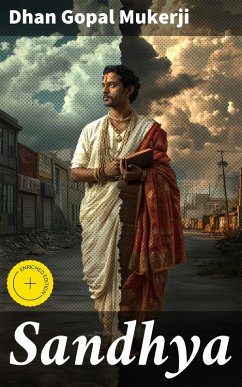In "Sandhya," Dhan Gopal Mukerji presents a poignant narrative that intertwines the themes of identity, belonging, and the intersection of Eastern and Western cultures. Set against the backdrop of early 20th-century America, the novel explores the life of an Indian immigrant, capturing his experiences and the complexities of cultural assimilation. Mukerji's lyrical prose, enriched with rich symbolism and vivid imagery, elegantly reflects the struggle of navigating between two worlds, while also delving into the universal quest for self-discovery and purpose. The text often oscillates between a lyrical style and prose reminiscent of both Indian storytelling and American realism, offering an introspective look at the immigrant experience during a period of significant social change. Dhan Gopal Mukerji himself was the first Indian author to gain prominence in American literature, and his own immigrant background profoundly informed his writing. Born in India, Mukerji moved to the U.S. to pursue his education, where he became acutely aware of the cultural challenges faced by those straddling diverse heritages. As a passionate advocate for Indian culture, his experiences navigating life in a foreign land inspired him to portray the internal conflicts of his characters in "Sandhya." I highly recommend "Sandhya" for readers interested in multicultural narratives that delve into the emotional intricacies of the immigrant journey. Mukerji'Äôs insightful portrayal of cultural duality and his masterful storytelling make this novel a significant contribution to the canon of literature discussing identity and belonging, urging readers to reflect on their own connections to culture and place.
Dieser Download kann aus rechtlichen Gründen nur mit Rechnungsadresse in A, B, BG, CY, CZ, D, DK, EW, E, FIN, F, GR, H, IRL, I, LT, L, LR, M, NL, PL, P, R, S, SLO, SK ausgeliefert werden.
Hinweis: Dieser Artikel kann nur an eine deutsche Lieferadresse ausgeliefert werden.









